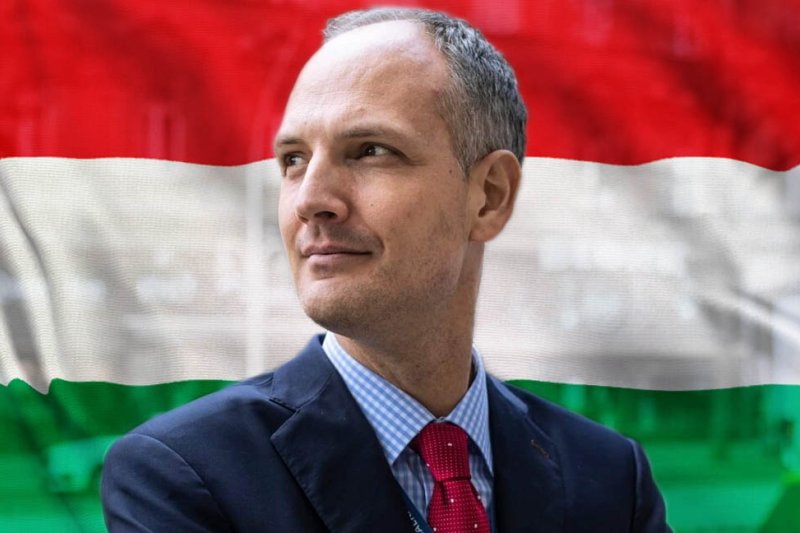Hungary, the EU and Western Balkans
The Albanian capital is hosting the Tirana Connectivity Forum 2024, which is taking place on 10 and 11 of September. As this 10th TCF edition concurs with the 10th anniversary of the Berlin Process, it will both take stock of one decade of Berlin Process in connectivity and regional cooperation, and place its discussions in the framework of EU Enlargement in Western Balkans.
Over the last ten years, TCF has fostered innovative ideas and enriching dialogues on a wide range of subjects including multi-layered connectivity and regional cooperation; transformative reforms and all-permeating institutional good governance; robust EU conditionality and solid European solidarity; enlargement and cohesion.
Naturally, despite this optimistic agenda, regional issues remain unsolved, with the most obvious being a Kosovo sanctioned by the EU, and a Republika Sprska openly displaying separatist tendencies.
Albania Daily News had the opportunity to interview the highest Hungarian representative at the ongoing Forum, Mr. Marton Ugrosdy, Deputy State Secretary, Office of the Prime Minister’s Political Director. Mr. Ugrosdy has been serving in the Hungarian government since June 2022 as Deputy State Secretary of the Cabinet Office of the PM. In his current role, he is responsible for preparing analytical and background briefing materials pertaining to the most recent developments of geopolitics, the internal dynamics of the European Union, as well as the activities of various key players in foreign affairs.
Hungary and the Western Balkans; Hungary at the helm of the rotating EU Presidency; the current situation regarding Kosovo and an assessment on Albania’s international role are some of the issues discussed.
-Mr. Ugrósdy, thank you for this opportunity. I would like to know which are your expectations on the outcome of the Tirana Connectivity Forum?
-One cannot speak enough the importance of Albania’s quickest possible accession to the EU. Hungary has been holding this flag very high ever since we joined 20 years ago, and it is my great pleasure to talk about this in Tirana as well. The Hungarian Government firmly believes that the promises made in Thessaloniki must be fulfilled, and every step which takes us closer to that goal is worth supporting. Furthermore, we have been working with the TCF organizers for a long time now, also within the framework of the Budapest Balkans Forum, and once again we are delighted to raise the profile of this event, and underline to all the observers the tremendous progress Albania has made recently.
-It’s no secret that Hungary has always been an enthusiast of Western Balkans’ EU integration; the attack on Ukraine has refocused EU’s attention on the region, and the Hungarian EU Presidency also puts emphasis on Enlargement. But on the other hand, the region countries’ progress seems to have stalled. What’s you take on that?
-As they say, it takes two to tango. The EU institutions also fell short of the expectations. With the war in Ukraine, that has been raging for more than two and a half years now, it is not easy to keep the focus on the Western Balkans. But with a few like-minded countries, we are working hard. On the other hand, as most of the political attention and funding is channeled towards Ukraine, challenges have been growing in Brussels too. EU credibility has also suffered, as the European Commission have single-mindedly pushed for the beginning of the accession talks with Ukraine, even though that even according to the Commission’s own assessment Ukraine was not ready to start the talks in last December.
Don’t get me wrong, we are not against enlargement. But enlargement must be a merit-based process, without any shortcuts, especially shortcuts granted due to political preferences. All too often we see that the Commission is using the term “Rule of Law” very selectively: for instance, they keep raising the issue of corruption with the Western Balkan countries, but they seem not to care at all about corruption in Ukraine. Hungary strongly advocates for the abolition of these double standards, as this would benefit the WB6 as well.
-Mr. Ugrósdy, which is you reply to the accusations, from various directions, that the Hungarian government befriends illiberal leaders in the region, most notably the RS President Milorad Dodik and Serbian President Vucic?
-The main driving force of our foreign policy is the national interest, and not the approval coming from various directions. First of all, the voters of democratic countries have the right to elect whomever they wish to lead their countries. Hungary is not to choose the leaders of other countries and political entities - just as we expect our friends, allies and various partners to observe the independence of our political process, we are also refraining from commenting on the actions of other governments. We respect our partners, and we believe the role of diplomacy is to talk, and not to point fingers.
Our baseline strategy is connectivity: we are seeking mutually beneficial relations with all our partners and neighbors, and if these relations are in the interest of our nation and in the interest of our partners as well, we will pursue them.
-Kosovo and connectivity in the Western Balkans; Pristina has always sustained that progress in this direction must be made only in the frame of the Berlin Process, refusing to participate in the Open Balkan initiative. In the meantime, the EU is increasingly criticizing Kosovo for ‘unilateral moves’ that harm stability and dialogue with Serbia, but a recent armed attack against Kosovo from Serbia’s territory is being forgotten. Do you have a comment on that; what would be Hungary’s advice?
-The Hungarian government, and Prime Minister Viktor Orbán himself has been talking a lot about the importance of peace, and that applies to the Southeast European region as well. The Hungarian Government has deployed hundreds of Hungarian soldiers to Kosovo, as well as Bosnia and Herzegovina to maintain peace at these flashpoints, but this job is not done yet.
We urge all parties to remain calm and restrained, as we would like to see a peaceful resolution to all these contentious issues. We do understand electoral dynamics, but it is our firm belief, that all the issues should be resolved peacefully. We hope that the sides will return to the negotiating table and will keep looking for a mutually acceptable solution.
The Hungarian experience is very telling: we used to have similar issues with some our neighbors before, but the only way we were able to resolve them was through mutual understanding, negotiations and little bit of political courage.
-Could you offer an assessment on Albania’s diplomatic role in the region and its international standing in the recent years?
-We applaud Albania for the enormous progress it has made towards Euro-Atlantic integration in the last decades. We are delighted to have Albania as an ally within NATO, and we are looking forward to welcome you to the EU as full members as soon as possible. With its unique language, culture and history, Albania is not unlike Hungary, albeit with a much nicer seashore.
And on a personal note, apart from our Prime Minister, I cannot really think of such a witty and funny head of government, as Prime Minister Edi Rama, I do like his speeches and videos a lot. But jokes aside, that kind of a rational, national interest-based and strategic approach that Albania has demonstrated recently is clearly an example that has to be more well-known and promoted in the EU and beyond.
-The presence of Hungarian investments in Albania has increased significantly. Which are the sectors your government assesses as areas of untapped potential for further cooperation?
-We are delighted to see bilateral economic cooperation expanding. Banking, IT, the telecom sector are examples of a cooperation which is beneficial for both the foreign investor and the host country. The Hungarian objective is to look for long-term partnerships, contributing to the economic development of Albania, and especially in the telco sector, lower the costs of use to open up new opportunities for people and businesses alike. Critical minerals might offer another opportunity for cooperation. The main task for the upcoming years will be how to engage Hungarian small and medium enterprises, and enable them to do business in Albania. The direct flights we have between our capitals is really helpful in that regard, and thanks to these short hops, Hungarian tourists have discovered Albania as a wonderful destination. Thanks to low-cost carriers, including WizzAir tourism has been booming.
Of course, there are some remaining issues which we are aware of, but the overall results are encouraging. With the upcoming high-level visits between the two governments, I believe the economic cooperation can grow much stronger as well. /ADN














